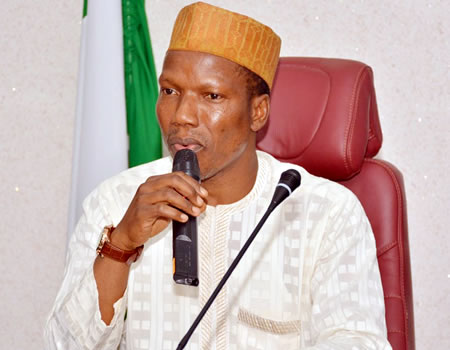DETERMINED to discourage the use of airports in the country as avenues for the sale of pirated books, films, music and other copyright infringing materials, the Federal Airports Authority of Nigeria (FAAN) and Nigerian Copyright Commission (NCC) have expressed their commitment towards the development and implementation of a national anti-piracy strategy to address the menace.
Both Federal agencies said they have agreed to work out the modalities for sustained proactive enforcement to ensure that the interest of right owners are adequately protected in line with the Federal Government policy of guaranteeing adequate return on investment and growing the creative sector.
The Managing Director of FAAN, Captain Rabiu Yadudu, and Director-General of NCC, Mr John O. Asein, made this known during a consultative meeting held at FAAN Headquarters in Lagos last week.
Yadudu who gave the assurance that FAAN would partner with NCC to ensure that its premises do not become a safe haven for copyright criminals, reiterated the commitment of authority to support NCC in its renewed fight against piracy in Nigeria.
According to Yadudu “We are committed as government agencies to protect public interest even in copyright matters and we owe a duty to assist each other in executing our mandates. The legal and commercial teams of FAAN will be deployed to assist NCC to strengthen its enforcement actions at airports across the country.”
Earlier, the DG NCC, Mr Asein had expressed concern at the high volume of pirated materials at the nation’s airports and the negative impact of this, not only on the fortunes of right owners but also on the nation’s image saying: “The Commission needs FAAN as well as other regulatory and enforcement agencies as key partners in its renewed drive to curb wanton copyright infringement in Nigeria. We are committed to full implementation of our mandate for sustainable growth of the creative industry. With your support, copyright piracy will not thrive under our watch.”
While emphasising that the criminal activities of a small percentage of Nigerians were capable of distorting the country’s image as a land of talented, industrious and law-abiding people, Asein regretted how the activities of pirates had adversely affected the educational sector and threatened the book industry.
Some of the authors whose books he said were highly pirated included: those of Nobel laureate, Professor Wole Soyinka; former Presidents Olusegun Obasanjo and Dr. Goodluck Jonathan as well as renowned authors like Olusegun Adeniyi.






